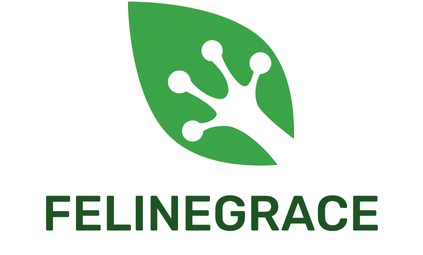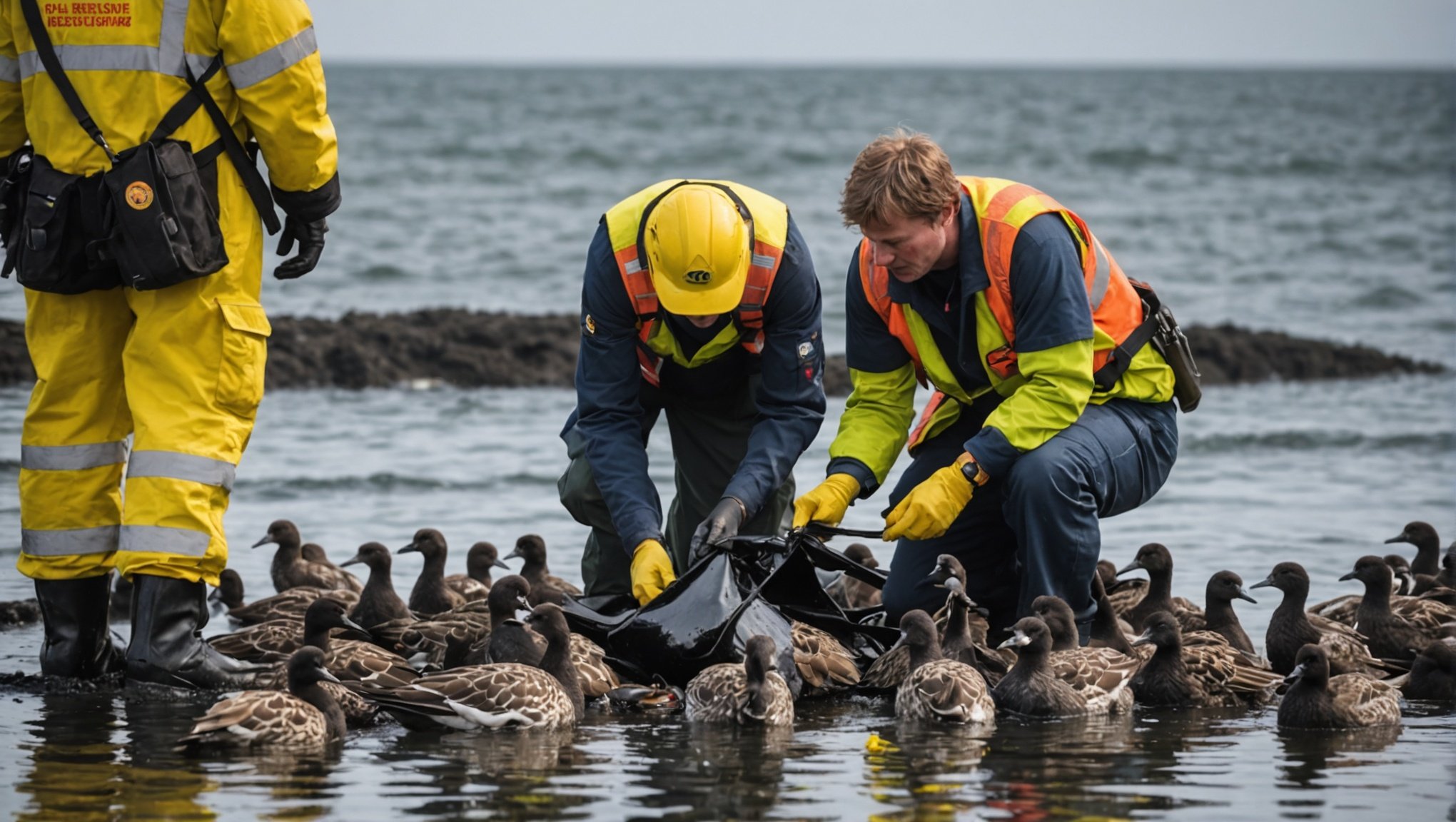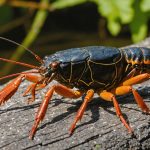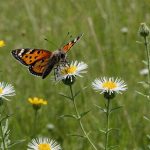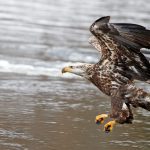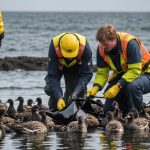When an oil spill occurs, the devastating impact on marine wildlife is immediate and can last for years. In the United Kingdom, responding to such environmental disasters requires a significant amount of resources and manpower. Among the first responders are wildlife rescuers who dedicate their time and effort to help affected animals. This article focuses on the specialized training required for UK volunteers who provide rescue services to birds affected by oil spills.
The Importance of Training in Wildlife Rescue
In the face of an oil spill, countless species of birds are rendered helpless, their feathers soaked in thick, sticky oil that not only inhibits their ability to fly, but also subjects them to hypothermia, poisoning, and death. The urgency of these situations necessitates an immediate and effective response from wildlife rescuers.
Lire également : How does the rewilding of UK’s meadows support insect biodiversity?
However, dealing with oil-spill affected birds is not as straightforward as it might seem. A lack of proper handling can result in further injury or stress to the animal, hampering the recovery process. As such, training becomes an essential component of wildlife rescue efforts.
Training equips volunteers with the necessary skills to provide effective care for afflicted birds, minimizing the risk of additional harm. Understanding the basics of bird anatomy, knowing how to properly clean and feed these animals, and being aware of any potential health risks are all crucial aspects of this training.
A lire également : How does the installation of green roofs in UK cities benefit local bird species?
The Role of Data in Training
Data plays a pivotal role in the training of wildlife rescuers. Both historical and real-time data provide valuable insights into the best practices for rescuing and rehabilitating birds affected by oil spills.
Historical data allows volunteers to learn from past oil spills. This includes studying the types of oil involved, the species affected, the mortality rates, and the effectiveness of different response strategies. On the other hand, real-time data allows for the tracking of current oil spills, predicting the areas most likely to be affected and the species at risk.
In addition to oil spill data, volunteers must also be familiar with data on the species they will be helping. Different bird species have distinct behaviours, dietary needs, and vulnerabilities, all of which influence their rescue and rehabilitation process.
Practical Skills Needed in Bird Rescue
The training provided to volunteers is primarily focused on practical skills. This includes teaching them how to safely capture and handle oil-soaked birds, as well as how to properly clean and rehabilitate these animals.
Capturing an oiled bird is a delicate task. Volunteers must be able to approach the bird without causing additional stress or injury. They also need to know how to use capture equipment, such as nets and towels, effectively and safely.
Once the bird is captured, the next challenge is cleaning the oil off its feathers. This is a meticulous process that involves careful handling of the bird and the use of detergents that can remove the oil without harming the animal. Volunteers must also learn how to keep the bird warm during this process, as hypothermia is a common issue with oiled birds.
After the bird is cleaned, the rehabilitation phase begins. This involves feeding the bird, providing medical care if needed, and monitoring its progress until it is ready to be released back into the wild.
Understanding the Human Factor in Animal Rescue
While technical skills are important, understanding the human factor is equally crucial in wildlife rescue. Volunteers must be prepared to work in challenging, often distressing situations. They must be able to cooperate with other volunteers, follow protocols, and maintain a calm and supportive attitude throughout the rescue process.
Training in this aspect focuses on fostering a sense of empathy for the animals, promoting teamwork, and teaching volunteers how to cope with the stress and emotional toll that can come with wildlife rescue work. It is essential to remember that the wellbeing of the volunteers is just as important as that of the animals they are helping.
The Support and Volunteering Infrastructure
An effective wildlife rescue effort requires a strong support and volunteering infrastructure. This includes organisations that provide training, coordinate volunteer efforts, and offer resources and support for both the volunteers and the animals they are helping.
In the UK, there are several organisations that play a key role in this infrastructure. These include the RSPCA, the Wildlife Trusts, and the British Divers Marine Life Rescue. All of these organisations offer training programs for volunteers, and work tirelessly to ensure that when an oil spill occurs, a team of competent, trained individuals will be ready to provide the necessary help.
As valuable as their efforts are, these organisations rely heavily on donations and public funding to continue their work. This underlines the importance of public support in wildlife rescue efforts, and serves as a reminder that everyone has a role to play in protecting our wildlife and our oceans.
The Core of Training Programs for Wildlife Rescuers
Training programs for wildlife rescuers are meticulous and comprehensive, designed to equip volunteers with a vast range of skills to aid them in the rescue and rehabilitation of birds affected by oil spills. These programs are spearheaded by various reputable organizations and service providers in the United Kingdom, such as the RSPCA, the Wildlife Trusts, and the British Divers Marine Life Rescue.
Against the backdrop of a catastrophic oil spill, the rescue and rehabilitation of affected birds is an intricate and delicate process. Comprehensive training programs for volunteers are vital in equipping them with the necessary knowledge and skills to execute their duties effectively. These programs typically cover areas such as bird anatomy, correct handling methods, cleaning procedures, feeding routines, and awareness of potential health risks.
The training also includes how to utilize data effectively. Volunteers are taught how to use both historical and real-time data on oil spills to anticipate the areas and species most likely to be affected. They also become familiar with the behaviours, dietary needs, and vulnerabilities of different bird species, information that is vital in the rescue and rehabilitation process.
Moreover, training programs also stress the importance of the human factor in wildlife rescue. They foster empathy, promote teamwork, and offer strategies to cope with the emotional toll that can come with witnessing the impact of oil spills on marine life.
Conclusion: Public Support is Crucial for the Continuity of Wildlife Rescue Efforts
The impact of an oil spill on marine life is devastating and long-term. While wildlife rescuers and their respective organizations are at the forefront of addressing this crisis, public support is integral to their efforts. These organizations rely heavily on donations and public funding to continue their work of rescuing and rehabilitating affected birds.
Public support goes beyond financial contributions. Raising awareness about the detrimental effects of oil spills, advocating for environmental protection policies, and volunteering time and skills are all crucial actions that can significantly aid wildlife rescue efforts. In this regard, everyone has a role to play in protecting our wildlife and our oceans.
Moreover, it is worth noting that while this discussion is centred around the United Kingdom, the principles and practices mentioned can be applied universally. In the United States, for instance, organizations such as the International Bird Rescue and the Oiled Wildlife Care Network also offer training programs for volunteers.
In conclusion, handling birds affected by oil spills is a complex and challenging task that requires specialized training. These training programs equip volunteers with the essential skills and knowledge needed to effectively rescue and rehabilitate these animals. However, the sustainability of these efforts largely depends on public support. Therefore, everyone has a role to play in ensuring the continuity of these lifesaving services. The hope is that, with increased awareness and involvement, we can mitigate the impact of oil spills on our precious marine life.
